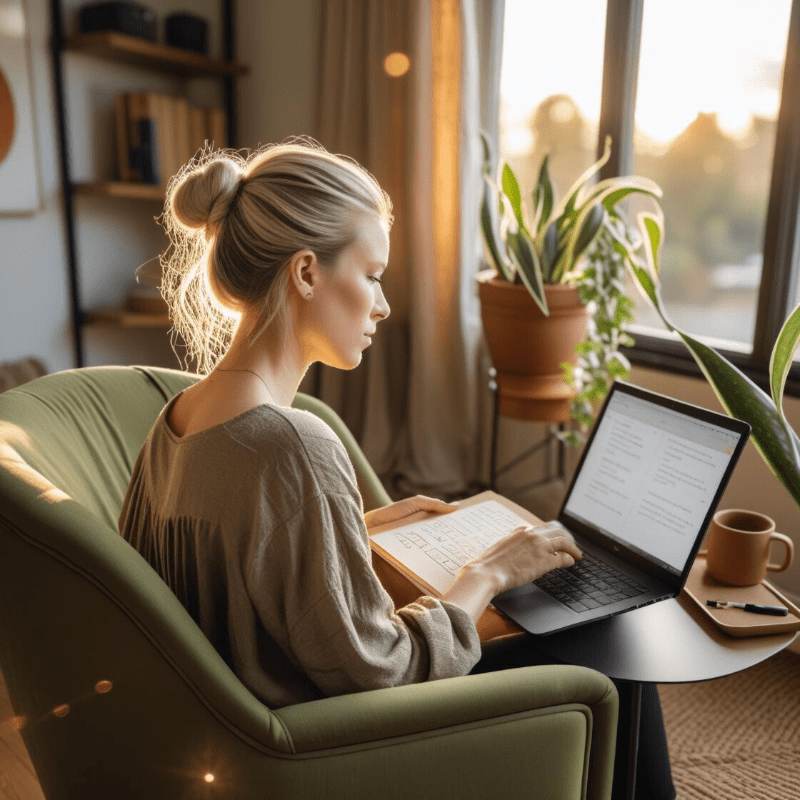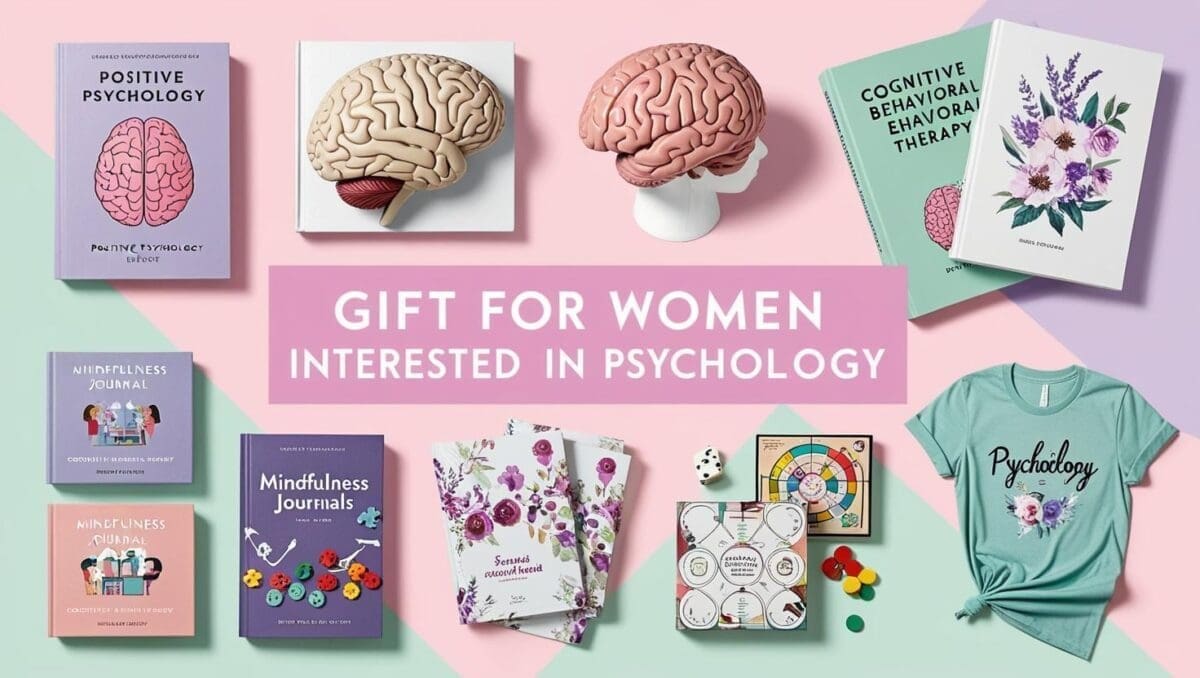It’s important to disclose that this blog post contains affiliate links. This means that if you make a purchase through these links, we may earn a commission at no additional cost to you.
In today’s world, mental health often gets overlooked amidst daily responsibilities. Yet, maintaining good mental health is as crucial as physical health. Regular mental health check-ins are essential for staying aware of your emotional and psychological well-being, spotting early signs of stress, and taking proactive steps to manage them. So, what makes for the best mental health check-in? Let’s explore the key components and practices to ensure your check-ins are effective and meaningful.
Why Are Mental Health Check-Ins Important in Everyday Life?
You might be wondering why a mental health check-in should be part of your daily routine. Here’s why:
Increases Self-Awareness
Understanding your emotions and mental state can help you recognize patterns, triggers, and areas that need attention. Just like you check your physical health by noting symptoms and getting regular check-ups, a mental health check-in allows you to tune into your mind and emotions.
Prevents Burnout
By monitoring stress levels through regular mental health check-ins, you can take steps to prevent burnout before it happens. It’s like a smoke detector for your mind, alerting you to rising stress levels so you can take action before things get out of control.
Improves Relationships
Being in tune with your mental state can improve how you interact with others and handle conflicts. When you’re aware of your feelings, you can communicate more effectively and build stronger, healthier relationships.
Promotes Overall Well-Being
Regular mental health check-ins can help you maintain a balanced and fulfilling life. They encourage you to make time for self-care, prioritize what’s important, and make necessary adjustments to enhance your overall well-being.
What is the Best Mental Health Check-In?
While mental health check-ins are highly individual, there are some best practices used by professionals that can guide you. Here are key components that make up an effective mental health check-in:
Set Aside Time Regularly
Just as you would schedule a workout or a doctor’s appointment, set aside time for a mental health check-in. It could be daily, weekly, or whatever frequency works best for you. Consistency is key.
Ask Yourself Key Questions
A mental health check-in involves asking yourself important questions about your feelings and thoughts. Here are some to get you started:
- How am I feeling right now?
- What’s been on my mind lately?
- Have I been feeling stressed, anxious, or down?
- What have I done for self-care this week?
Reflect and Journal
Writing down your thoughts can be incredibly therapeutic. Journaling during your mental health check-in helps you process your emotions and gain insights into your mental state. It’s a great way to track your progress over time. This Journal is a perfect companion for anyone looking to enhance their journaling practice. This thoughtfully designed journal provides structured prompts and sections that guide you through self-reflection, goal setting, and tracking your progress. With its elegant and durable design, makes it easy to establish a consistent journaling routine, helping you to explore your thoughts, emotions, and aspirations. By using this journal, you can cultivate mindfulness, gain clarity, and stay motivated on your personal growth journey. It’s more than just a journal; it’s a tool for creating a more intentional and fulfilling life.
Practice Mindfulness and Meditation
Incorporating mindfulness or meditation into your mental health check-in can help you stay grounded and present. These practices can reduce stress and increase your overall sense of well-being. Here you can find a list of helpful meditation resources on Youtube and Spotify:
YouTube
- 10-Minute Mindfulness Meditation by The Honest Guys
- Guided Meditation for Anxiety & Stress by Goodful
- Daily Calm | 10 Minute Mindfulness Meditation | Be Present by Calm
Spotify
- Guided Meditation for Deep Relaxation by Meditation Oasis
- Mindfulness Meditation by Melli O’Brien
- Calm Meditation for Stress Relief by Jason Stephenson
One excellent tool for meditation is the Headspace app, which offers a wide range of guided meditation sessions designed to suit various needs and experience levels. Users can start with the Basics course, which introduces the fundamentals of meditation and mindfulness. The app also provides themed sessions focused on specific areas such as stress relief, sleep, focus, and anxiety. With its user-friendly interface, you can easily set daily reminders, track your progress, and explore a library of hundreds of meditations. Headspace makes it simple to integrate meditation into your daily routine, helping you to cultivate a calmer and more mindful life.
Seek Support When Needed
If your mental health check-in reveals that you’re struggling, don’t hesitate to seek support. Talking to a friend, family member, or mental health professional can make a big difference.
Talkspace is an excellent online therapy option that makes getting professional mental health support easy and accessible. Users can start by taking a brief assessment to match with a licensed therapist based on their specific needs and preferences. With Talkspace, you can communicate with your therapist through text, audio, or video messages, making it convenient to fit therapy into your busy schedule. Whether you’re dealing with stress, anxiety, depression, or any other mental health concerns, Talkspace offers a flexible and supportive environment to get the help you need from the comfort of your own home.
Monitor Physical Health
Mental and physical health are deeply interconnected. Pay attention to your physical health indicators such as sleep patterns, diet, and exercise. Poor physical health can often contribute to mental health issues.
Use Mental Health Apps
There are many apps designed to help you track your mental health. These can provide structure to your check-ins and offer useful tools and resources. Headspace is an invaluable mental health app that can significantly enhance your well-being through its comprehensive suite of mindfulness and meditation tools. With Headspace, you gain access to a wide variety of guided meditation sessions designed to reduce stress, improve sleep, and boost overall mental health. The app’s user-friendly interface and engaging animations make it easy to integrate meditation into your daily routine, whether you’re a beginner or an experienced practitioner. Beyond meditation, Headspace offers mindful workouts, sleep sounds, and focus-enhancing exercises, all curated to help you maintain a balanced and calm mind. By incorporating Headspace into your life, you can take proactive steps toward better mental health, making mindfulness a natural and enjoyable part of your everyday routine.
Conclusion
Incorporating a mental health check-in into your routine can have profound benefits for your overall well-being. While the best mental health check-in is highly individual, using best practices like regular self-reflection, journaling, mindfulness, and seeking support can make a significant difference. Prioritize these check-ins, and you’ll likely see positive changes in your mental health and overall life satisfaction. Remember, your mental health is just as important as your physical health, and taking the time to check in with yourself is a powerful step towards a healthier, happier you.

About the Author
Hi, I’m Eve, a former school counselor with a master’s degree in School Psychology and a passionate advocate for children and families navigating sensory challenges. As a mom of children with sensory sensitivities, I deeply understand the journey special-needs parents face, and I dedicate myself to researching and sharing practical solutions to help children thrive and feel comfortable in their bodies. My goal is also to empower counselors, therapists, and psychologists with creative strategies and supportive resources to enrich their everyday practice. When I’m not writing or exploring new therapeutic approaches, you’ll find me spending quality time with my family and continually seeking inspiration from everyday moments.



